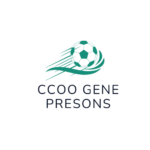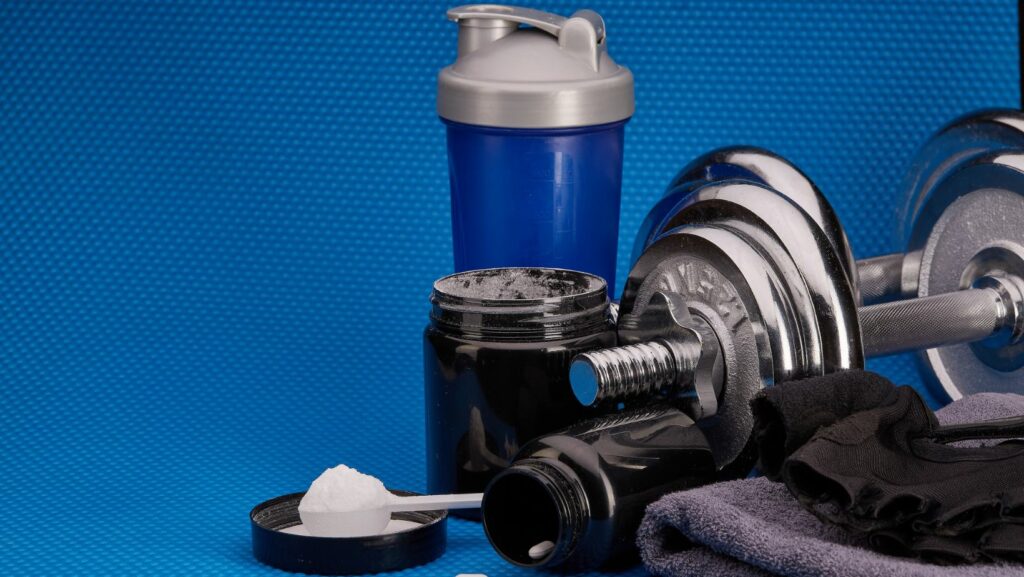Advanced Sports Nutrition
- Personalized Nutrition: Advanced sports nutrition emphasizes tailored dietary strategies that cater to individual athlete needs, enhancing both performance and recovery.
- Macronutrient Balancing: Adjusting the intake of carbohydrates, proteins, and fats based on training demands supports optimal energy levels and muscle recovery.
- Nutrient Timing: Strategic consumption of nutrients before, during, and after workouts maximizes glycogen synthesis and promotes efficient muscle repair.
- Hydration Importance: Maintaining hydration and electrolyte balance is crucial for sustaining energy levels, preventing cramps, and supporting overall athletic performance.
- Supplementation Strategies: Targeted use of supplements like BCAAs, omega-3s, and creatine can enhance recovery, reduce inflammation, and improve strength when used appropriately.
- Sport-Specific Approaches: Each sport has unique nutritional requirements, underscoring the need for customized strategies to ensure athletes reach their peak potential.
 In the competitive world of athletics, nutrition plays a crucial role in performance and recovery. Advanced sports nutrition goes beyond basic dietary guidelines, focusing on tailored strategies that optimize energy levels and enhance physical capabilities. Athletes are increasingly turning to specialized diets and supplements to gain that extra edge, making it essential to understand the latest trends and research in this field.
In the competitive world of athletics, nutrition plays a crucial role in performance and recovery. Advanced sports nutrition goes beyond basic dietary guidelines, focusing on tailored strategies that optimize energy levels and enhance physical capabilities. Athletes are increasingly turning to specialized diets and supplements to gain that extra edge, making it essential to understand the latest trends and research in this field.
From macronutrient timing to the benefits of specific micronutrients, advanced sports nutrition offers a wealth of knowledge that can transform an athlete’s training regimen. With the right approach, individuals can fuel their bodies effectively, improve endurance, and accelerate recovery. As the science of sports nutrition evolves, athletes and coaches alike must stay informed to harness these advancements for peak performance.
Overview of Advanced Sports Nutrition
Advanced sports nutrition focuses on personalized dietary strategies that enhance athletic performance and recovery. It combines scientific research with practical applications to optimize physical capabilities.
Definition and Importance
Advanced sports nutrition refers to a comprehensive approach to dietary intake tailored specifically for athletes. This strategy emphasizes the significance of optimal nutrient timing, individual macronutrient ratios, and the inclusion of micronutrients to support training demands. Understanding this specialized nutrition is crucial for athletes seeking to improve performance, manage fatigue, and promote faster recovery. Enhanced nutrient intake influences energy metabolism, muscle repair, and overall endurance, making it essential for competitive athletes.
- Macronutrient Ratios: Adjusting the balance of carbohydrates, proteins, and fats according to individual needs supports energy production and muscle recovery.
- Nutrient Timing: Consuming specific nutrients around training sessions maximizes glycogen synthesis and muscle repair. This strategy often includes pre-, during, and post-exercise nutrition.
- Hydration: Maintaining optimal fluid levels through adequate hydration affects performance and recovery. Electrolyte balance ensures sustained energy levels and reduces the risk of cramps and dehydration.
- Supplementation: Incorporating targeted supplements, such as branched-chain amino acids (BCAAs) and omega-3 fatty acids, supports recovery and reduces inflammation.
- Individualization: Recognizing that every athlete has unique needs fosters tailored nutrition plans. Factors such as age, gender, sport type, and training intensity influence dietary strategies.
Essential Nutrients for Athletes
Athletes require a balanced intake of nutrients for optimal performance and recovery. Understanding the role of macronutrients and micronutrients is crucial for developing effective nutrition strategies.
Macronutrients
Macronutrients consist of carbohydrates, proteins, and fats, each serving specific functions in an athlete’s diet.
- Carbohydrates provide the primary energy source, fueling intense workouts and aiding recovery. Endurance athletes may focus on higher carbohydrate intake to replenish glycogen stores.
- Proteins support muscle repair and growth. Aiming for 1.2 to 2.0 grams of protein per kilogram of body weight enhances recovery from strenuous activities.
- Fats serve as a secondary source of energy and support hormone production. Incorporating healthy fats, such as avocados and nuts, helps maintain overall stamina.
Micronutrients
Micronutrients, including vitamins and minerals, play essential roles in performance and recovery.
- Vitamins such as B-complex vitamins support energy metabolism, while vitamin D aids in muscle function and bone health.
- Minerals like calcium and magnesium support muscle contraction and muscle recovery. Iron is crucial for oxygen transport, contributing to performance endurance.
Athletes should prioritize a well-rounded diet to ensure adequate intake of these essential micronutrients.
Innovative Strategies in Advanced Sports Nutrition
Innovative strategies in advanced sports nutrition revolve around precise timing and the effective use of supplements. These elements play a crucial role in optimizing performance and recovery for athletes.
Timing and Frequency of Nutrition
Nutrient timing significantly impacts performance and recovery. Consuming carbohydrates and proteins before and after workouts enhances energy availability and muscle repair. Athletes often benefit from eating a balanced meal rich in carbohydrates and proteins approximately 30 to 60 minutes pre-exercise.
Frequent, smaller meals throughout the day promote sustained energy levels and reduce muscle breakdown. Spreading macronutrient intake into five to six meals can facilitate optimal nutrient absorption. Research indicates that post-exercise nutrient consumption within 30 minutes aids glycogen replenishment and muscle recovery.
Use of Supplements and Ergogenic Aids
Supplementation can enhance athletic performance when tailored to individual needs. Branched-chain amino acids (BCAAs) support muscle repair and reduce soreness after intensive training. Omega-3 fatty acids are known to decrease inflammation and improve recovery time.
Creatine remains one of the most researched ergogenic aids, shown to increase strength and power output. Athletes often utilize protein powders to meet dietary protein goals conveniently.
Caffeine is another popular supplement, enhancing endurance and reducing perceived effort during training. However, athletes should evaluate the efficacy of each supplement based on their specific sport and individual response.
Role of Hydration in Athletic Performance
Hydration plays a vital role in athletic performance, influencing endurance, strength, and recovery. Maintaining optimal hydration levels enhances physical capabilities and supports overall health.
Hydration Strategies
Hydration strategies focus on ensuring adequate fluid intake and electrolyte balance.
- Pre-Workout Hydration: Athletes should consume 16-20 ounces (about 500-600 mL) of water 2-3 hours before exercise. This promotes optimal hydration prior to performance.
- During Workout Hydration: Athletes must drink 7-10 ounces (about 200-300 mL) every 10-20 minutes during exercise, particularly for activities lasting over an hour. Sports drinks containing electrolytes may also benefit endurance and prevent cramping.
- Post-Workout Hydration: Consuming 16-24 ounces (450-700 mL) of water or a recovery beverage after exercise restores lost fluids. This practice supports recovery and prepares the body for subsequent training sessions.
Monitoring Hydration Status
Monitoring hydration status ensures that athletes maintain optimal fluid levels.
- Urine Color: Athletes can use urine color as a quick indicator. Light yellow suggests proper hydration, while dark yellow indicates dehydration.
- Body Weight: Tracking body weight before and after exercise provides insights into fluid loss. Losing more than 2% of body weight can negatively impact performance.
- Thirst Sensation: Athletes should pay attention to thirst cues. Although thirst is not always reliable, it’s an indicator that fluid intake may be necessary.
Effective hydration contributes to enhanced athletic performance, making it a crucial component of advanced sports nutrition.
Case Studies and Practical Applications
Case studies and practical applications demonstrate the impact of advanced sports nutrition on athletic performance and recovery. Real-world examples highlight successful strategies adopted by athletes across various sports.
Success Stories
- Endurance Athletes: Long-distance runners have adopted periodized nutrition plans, incorporating tailored macronutrient ratios. A study showed that adjusting carbohydrate intake based on training cycles enhanced glycogen storage, leading to improved race day performance by an average of 10%.
- Strength Athletes: Powerlifters utilizing protein timing strategies experienced 15% greater muscle protein synthesis post-training. Consuming whey isolates immediately post-workout significantly boosted recovery and subsequent training performance.
- Team Sports: Soccer players in a study who consumed BCAAs during intense training sessions demonstrated reduced muscle soreness by 30%. This led to enhanced performance during matches, with a noted increase in sprinting efficiency.
- Cyclists: Competitive cyclists implementing omega-3 supplementation observed a decrease in inflammation markers and quicker recovery times, resulting in a 5% improvement in overall race times.

- Track and Field: Sprinters should focus on a high-quality carbohydrate intake before events for optimal energy. Post-race recovery should prioritize protein-rich foods to aid muscle repair.
- Swimming: Swimmers benefit from a blend of carbohydrates and protein post-practice, promoting recovery. Hydration strategies include electrolyte supplements to maintain optimal performance levels during training.
- Football: Football players require a balanced mix of carbs, proteins, and fats throughout the day. Pre-game meals high in carbohydrates can enhance glycogen storage and energy levels for performance.
- Martial Arts: Athletes in combat sports can benefit from timing carbohydrate consumption before training for energy. Post-training protein intake is crucial for muscle recovery and maintenance.
- Cycling: Cyclists should consume fluids that include electrolytes during rides. Following rides, a mixed nutrient approach—consuming both carbs and protein—enhances muscle recovery and replenishment.
Each sport necessitates specific nutritional strategies tailored to the demands of the activity, ensuring athletes achieve peak performance.
A Pivotal Role in an Athlete’s Journey Toward Peak Performance
Advanced sports nutrition plays a pivotal role in an athlete’s journey toward peak performance. By focusing on individualized strategies and the precise timing of nutrient intake, athletes can unlock their full potential. Tailored diets and targeted supplements not only enhance energy levels but also aid in recovery and muscle repair.
Hydration remains a cornerstone of effective nutrition, ensuring athletes maintain optimal performance throughout their training and competitions. As the landscape of sports nutrition evolves, staying informed about the latest research and trends is essential for athletes aiming to gain a competitive edge. Embracing these advanced nutritional principles can lead to significant improvements in endurance, strength, and overall athletic success.

